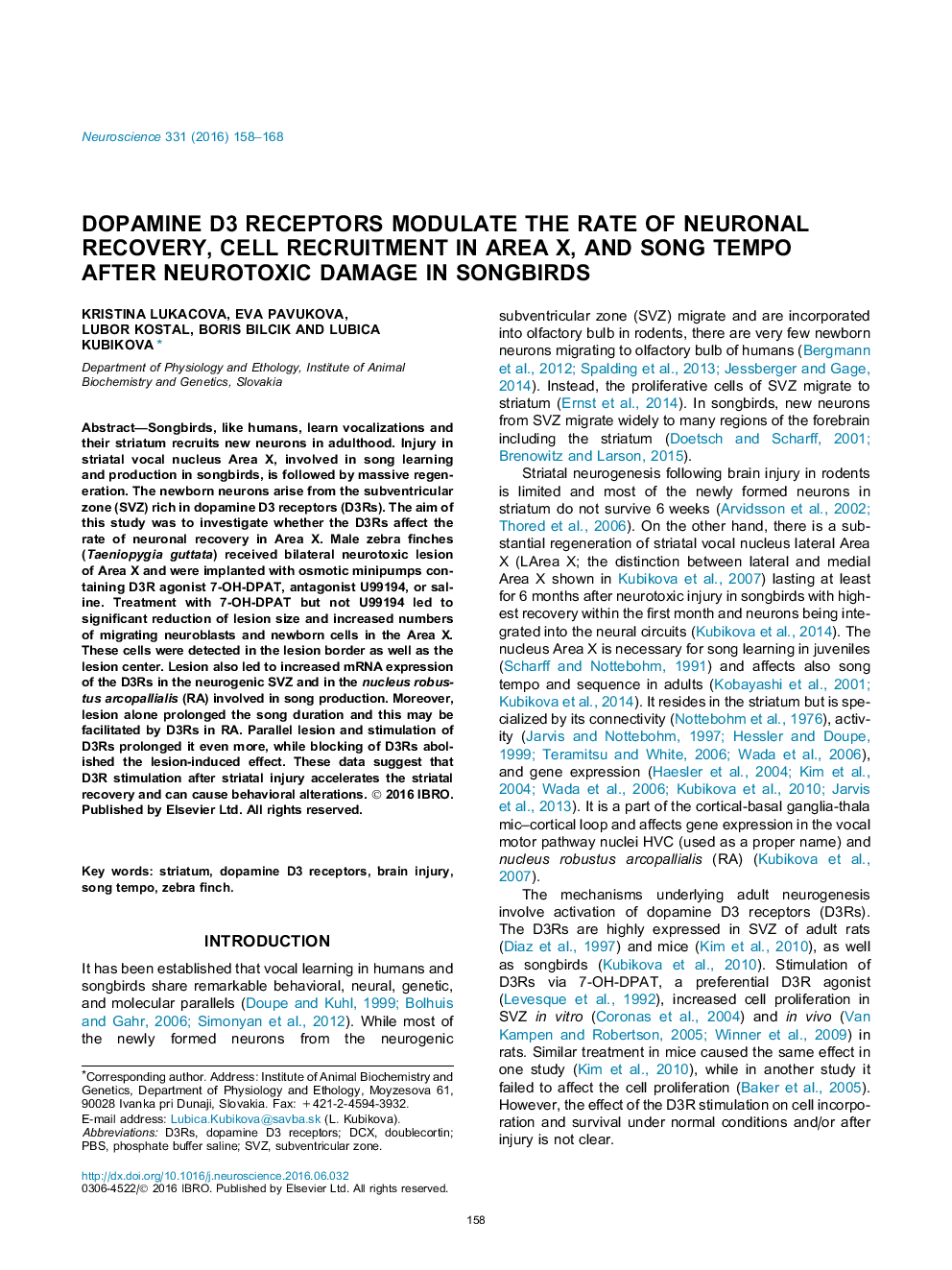| کد مقاله | کد نشریه | سال انتشار | مقاله انگلیسی | نسخه تمام متن |
|---|---|---|---|---|
| 4337281 | 1614745 | 2016 | 11 صفحه PDF | دانلود رایگان |

• Activation of D3Rs reduces lesion size within the striatal vocal nucleus Area X after injury.
• Activation of D3Rs increases the number of young neurons in Area X after injury.
• Striatal injury increases the mRNA expression of D3Rs in the neurogenic subventricular zone and in RA.
• The lesion-induced changes in song tempo may be facilitated by D3Rs in the motor nucleus RA.
Songbirds, like humans, learn vocalizations and their striatum recruits new neurons in adulthood. Injury in striatal vocal nucleus Area X, involved in song learning and production in songbirds, is followed by massive regeneration. The newborn neurons arise from the subventricular zone (SVZ) rich in dopamine D3 receptors (D3Rs). The aim of this study was to investigate whether the D3Rs affect the rate of neuronal recovery in Area X. Male zebra finches (Taeniopygia guttata) received bilateral neurotoxic lesion of Area X and were implanted with osmotic minipumps containing D3R agonist 7-OH-DPAT, antagonist U99194, or saline. Treatment with 7-OH-DPAT but not U99194 led to significant reduction of lesion size and increased numbers of migrating neuroblasts and newborn cells in the Area X. These cells were detected in the lesion border as well as the lesion center. Lesion also led to increased mRNA expression of the D3Rs in the neurogenic SVZ and in the nucleus robustus arcopallialis (RA) involved in song production. Moreover, lesion alone prolonged the song duration and this may be facilitated by D3Rs in RA. Parallel lesion and stimulation of D3Rs prolonged it even more, while blocking of D3Rs abolished the lesion-induced effect. These data suggest that D3R stimulation after striatal injury accelerates the striatal recovery and can cause behavioral alterations.
Journal: Neuroscience - Volume 331, 7 September 2016, Pages 158–168